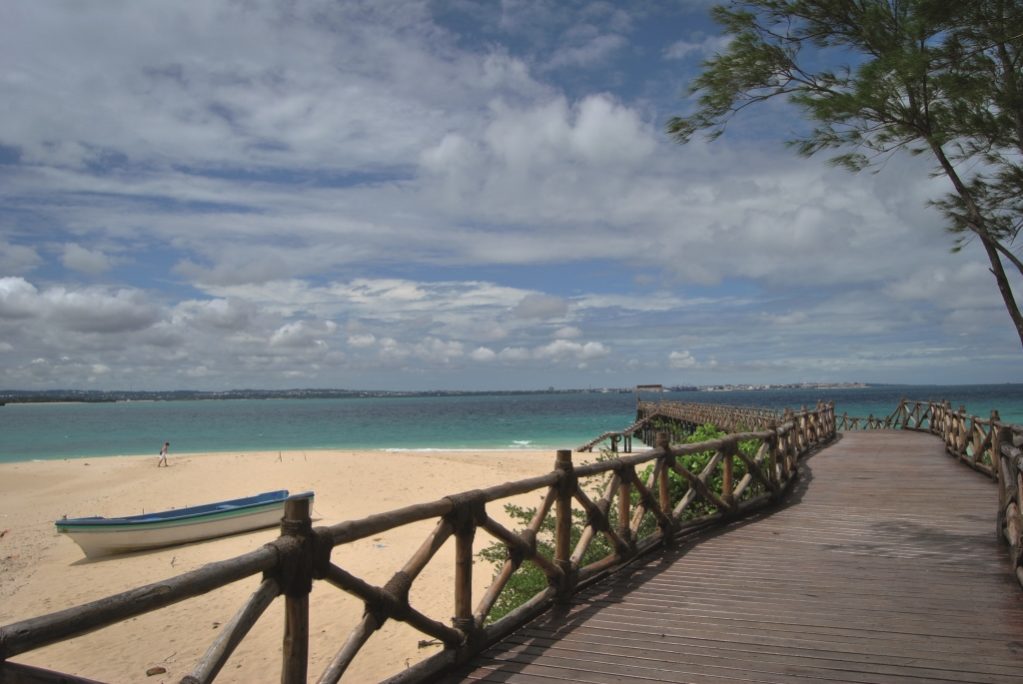The officer stared at me through the glass window as I tried to explain why I didn’t have a visa. I was unaware that the 90-day visa waiver to Tanzania excluded business travel. It was hot, humid and I was soaked from the rain. The only thing between me and paradise was him.
“Mam, would you please step inside the office.”
I knew exactly what was happening; I had seen this before in a Quentin Tarantino movie. I was being detained.

It was only a few hours before that I had boarded a boat from Dar es Salaam to Zanzibar. For four hours I sat on the rocking boat, watched City Lights – the silent black and white movie with Charlie Chaplin – spoke to the German businessman next to me and brushed up on my Swahili.
Loading...
Now I was here, sitting across the table from three officers, wondering if I’ll fly back to South Africa in handcuffs.
I don’t remember how it happened but instead of paying a $300 fine, I got off with a friendly warning and great travel advice.
As soon as I reached Kisiwa House, a bed and breakfast in Stone Town, I dropped my bags and called a tour guide. We weaved through the narrow cobble-stone streets, dodging the children playing and people riding scooters and bicycles. But I couldn’t take my eyes off the doors.
The closer I got to them, the finely chiseled flowers, scales, ropes and chains became clearer. The Arabic style doors, often found with transcriptions, are square at the top while the Indian doors have round tops.
Stone Town, named a World Heritage Site by UNESCO in 2000, is rich in history. The Persian Baths, Tippu Tip’s House and House of Wonders are popular tourist attractions. There’s a stone sculpture next to Christ Church, which used to be the center of the slave market. The tour guide said the altar inside the church used to be a whipping post to test the slaves’ strength.
After a long day of sightseeing, the tour ended at the waterfront. I picked a spot close to the sea and watched children flip, roll, tumble and dive into the water. In the distance, the fishermen sailed to shore to set up for the evening Forodhani market.
The rain didn’t keep anyone from coming to indulge in the local cuisine which included piles of lobster, fish, octopus and calamari. The food is cooked over a fire and eaten with coconut bread.

I had an interesting conversation with a fisherman about life at sea. He was part of a team of 10 who worked day and night shifts, so they always had fish. Although he enjoyed his easy life, he longed to experience life outside Zanzibar.
The next morning I was woken by roosters crowing, motorbikes riding and the call to prayer from the Mosques. After breakfast, I set out to Prison Island, a smaller islet off the coast of Zanzibar, by boat. As the waves pounded against the small wooden boat, the two-man crew struggled to steady it. When I looked around and saw only blue I began to understand just how vast and powerful the ocean is. It was thrilling, yet scary.
Then out in the distance I saw the white sandy beach of Prison islet. Although it never housed the incarcerated, its low walls would have made for an easy escape. The island has two main attractions: clear waters for snorkeling and giant tortoise. There were tortoises that were over 150 years old and some weighed up to 200 kilograms.
A few hours later, I was back on the mainland wandering through the stores along Kenyatta Road. While staring at a painting of the Masai, done in the Tanzanian Tingatinga style, I was distracted by a lady yelling at her child.
“Iwe, Musabata!” I smiled. It was a phrase I was all too familiar with, growing up in a Shona-speaking household. It means, “You, don’t touch that.”
I walked over to her, as she scolded her child and struck up a conversation. She left Zimbabwe six years ago hoping to provide a better life for her children. She was a teacher at one of the local schools and hoped to one day return to Zimbabwe.
On my last night on the island, I met some tourists for sundowners at Africa House, a restaurant on the beach with an amazing view of the ocean. Everyone gazed at the sun, in its red, yellow and orange glory, as it dipped beyond the horizon. It was as if they were seeing it for the first time. I sank in my seat and watched a solitary boat sail the vast sea. Perhaps this is what JRR Tolkien saw when he said, “Not all who wander are lost”. Just then Paradise by Coldplay began to play. I smiled, how fitting.
Loading...
